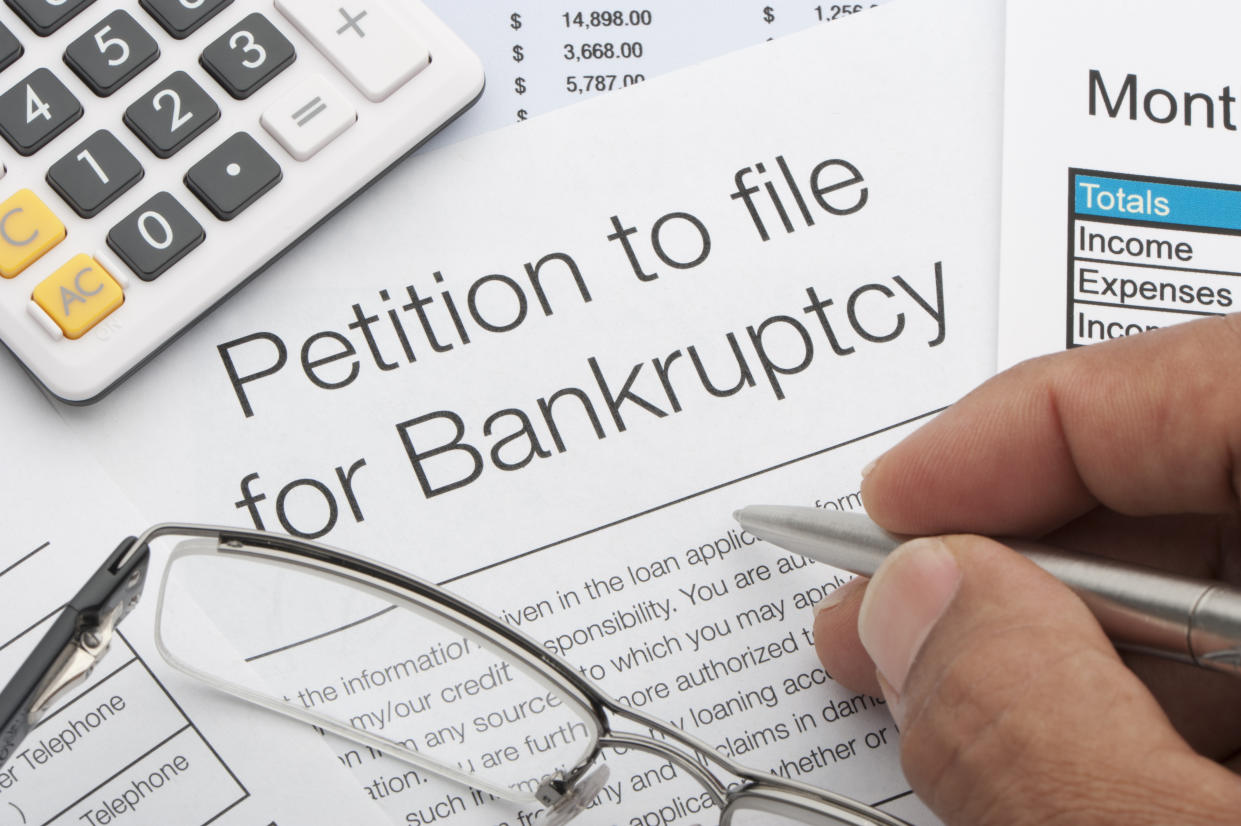Student loan servicers must return illegally collected debt, CFPB says
The nation's most powerful financial watchdog agency directed student loan servicers that unlawfully collected debt discharged in bankruptcy to return those funds to affected borrowers.
It also warned all servicers against the illegal practice and to cease those efforts immediately.
The bulletin issued by the Consumer Financial Protection Bureau (CFPB) on Thursday comes after the agency’s examiners found some private student loan servicers did not determine whether loans were discharged and continued to bill and collect payments, running afoul of the Consumer Financial Protection Act’s “prohibition on unfair, deceptive, or abusive acts or practices.” Many borrowers continued to pay thousands of dollars on those loans, it said.
“When a court orders the discharge of a loan, lenders and servicers should not treat this as a suggestion,” CFPB Director Rohit Chopra said in a press release. “The CFPB has found that some servicers are ignoring bankruptcy court orders. The student loan servicing industry should ensure that their collection practices are compliant with the law.”
Many student advocates cheered the bulletin against the collection practice.
“With student loans that have been discharged in bankruptcy, this is not only illegal but predatory and loan servicers and debt collectors know that they are not allowed to pursue debts that the lender has been ordered by a bankruptcy court to discharge,” Katherine McKay, associate director of insights and evidence at the Aspen Institute Financial Security Program, told Yahoo Finance.

Some private student loans are dischargeable in bankruptcy
Many student loans are subject to an “undue hardship” standard and receive special treatment that requires a separate hearing to be discharged in bankruptcy. Because of that, many borrowers assume that all student loans can’t be discharged in bankruptcy. But that isn’t the case when it comes to certain types of private student loans.
Some private student loans can be discharged like other consumer debts with a regular bankruptcy order.
Private student loans that can be discharged without a separate hearing are considered “non-qualified higher education expenses” and include:
Loans for attendance at non-accredited and foreign schools ineligible for U.S. Federal student aid
Loans given to borrowers who attended less than half-time
Loans given over the cost of attendance, disbursed directly to the borrower, instead of the school
Loans to cover fees, costs, studying, and living expenses for the bar exam or other professional exams
Loans associated with the costs, fees, and living expenses for a medical or dental residency
Other loans made for non-qualified higher education expenses
These private loans are dischargeable with a judge’s bankruptcy order. However, some loan servicers still charge and collect this debt from borrowers even after it was discharged in a bankruptcy.
In 2022, an investigation by the Student Borrower Protection Center (SBPC) estimated that $50 billion in private student loans, representing 2.6 million borrowers, were qualified for a discharge in bankruptcy “despite representations to the contrary by lenders and loan servicers.”
“These companies are taking advantage of vulnerable individuals who have already gone through a difficult financial process and are attempting to get back on their feet,” Natalia Abrams, founder of the Student Debt Crisis Center, told Yahoo Finance. “It is reassuring to see the Consumer Financial Protection Bureau taking action to hold these bad-acting companies accountable and protect consumers from further harm. It is important that we continue to push for fair and just treatment of borrowers and hold these companies accountable for their actions.”

Bankruptcy and federal student loans
The CFPB’s bulletin, however, only applies to private student loans. Those balances are less than 10% of all student loan debt, McKay noted.
“Bankruptcy rules for private loans are a little bit less stringent, but the ‘undue hardship’ standard is still quite high” for federal loans, McKay added.
There have been recent changes to bankruptcy laws for debtors with federal student loans who seek discharge under the “undue hardship” standard, which requires a special review and a separate hearing.
In November, the Department of Justice and Education Department jointly announced a new streamlined process to relieve some of the evidentiary burdens placed on federal student loan borrowers to prove they are suffering a severe enough hardship to necessitate discharge.
Previously, even when a few debtors managed to qualify for discharge, the Education Department had opposed discharging the student loan debt — including debtors who had chronic or terminal illnesses like cancer or epilepsy.
The new process will use data from the Education Department and a borrower attestation form that the Justice Department, in consultation with the Education Department, will review to determine whether to recommend that the bankruptcy judge discharge the borrower’s student loan debt, according to a DOJ press release. The new process also seeks to bypass what the government called “burdensome and time-consuming investigations” for borrowers.
“I had a client who had her student loans discharged because she had no ability to pay as she suffered a brain injury from a car crash the week before graduating with her master’s degree,” McKay said. “However, it took years until she was approved for Social Security Disability payments. Anyone who prevails in these situations has provided an abundance of evidence and they should be able to move forward along the path to gaining financial stability.”
Ronda is a personal finance senior reporter for Yahoo Finance and attorney with experience in law, insurance, education, and government. Follow her on Twitter @writesronda
Read the latest financial and business news from Yahoo Finance
